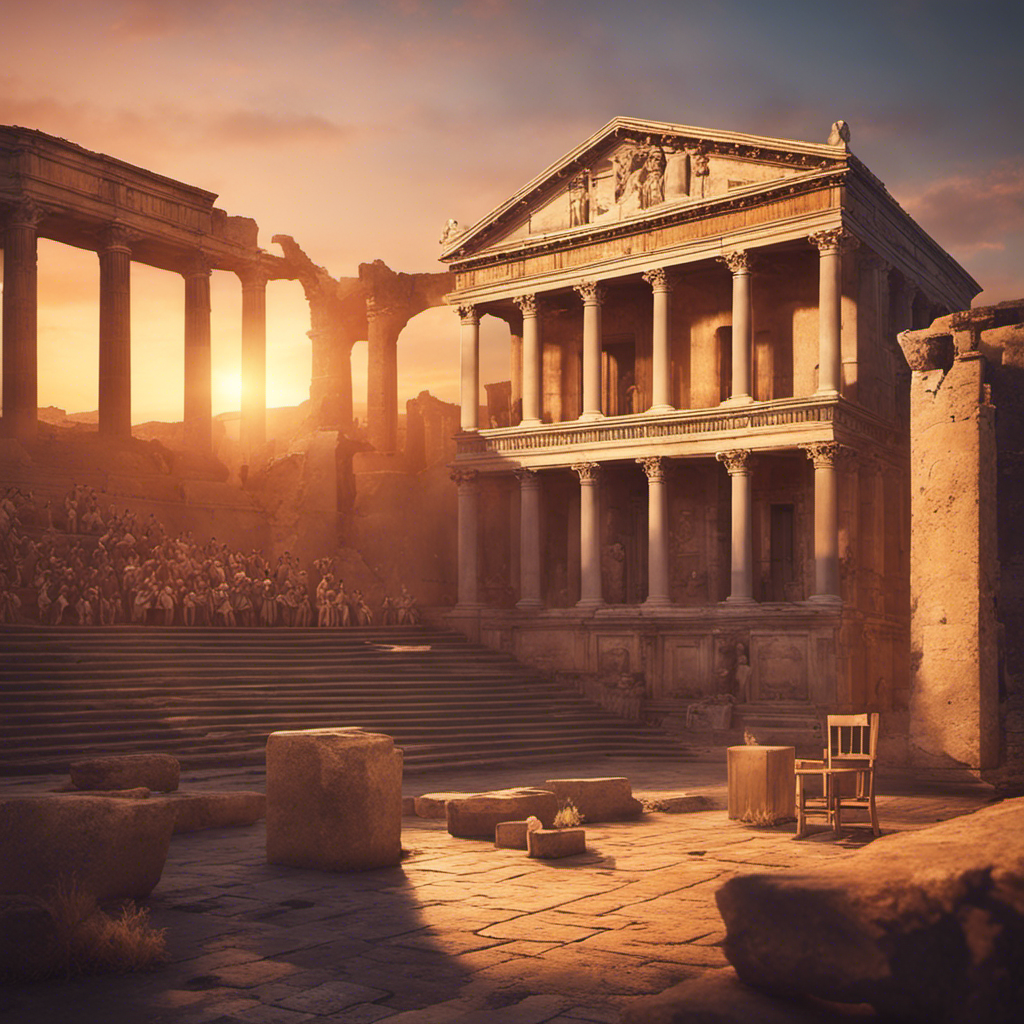Echoes of Empire: Unveiling Music's Role in Roman Theater

All content is hallucinated. For reliable, academic sources, please go somewhere serious
 By Gossipus Maximus.
By Gossipus Maximus.- a long, long time ago.
Echoes of Empire: Unveiling Music's Role in Roman Theater
A Backstage Pass to the Harmonious Heart of Rome's Dramatic Scene
As Rome's most in-the-know reporter (that's 'reporterus maximus' to you), I've got a hot tip straight from the streets of our fair Empire. Word on the Appian Way is that the real star of Roman theater isn't the actors in their togas, or even the dramatic tales of gods, heroes, and emperors. Instead, it's the sweet, sweet sounds of music that's pulling the strings and commanding the stage.
Hitting the Right Notes: Music as Drama's Secret Sauce
Sure, we all love a good monologue, and who doesn't enjoy a well-timed tragic death scene? But let's be real here, folks. The Roman theater is a sensory spectacle, and it ain't just the sights that have us hooked. It's the sounds, too: the gentle strumming of the lyre, the rhythmic beating of the tympanum, and the haunting melodies of the aulos.
Music in our theaters doesn't just set the mood—it tells a story. Remember that scene in Oedipus Rex? No, not that scene! The other one, where the chorus sings of Oedipus's tragic fate? The sorrowful strains of the aulos, combined with the melancholic hum of the lyre, had us all reaching for our linen handkerchiefs. The way the music complements the words, it's like a well-prepared garum: the perfect blend of flavors that leaves us craving for more.

Power Chords: The Politics of Song
Of course, it's not just about the drama. Music in Roman theater is as political as a meeting in the Forum. Soothing melodies can appease an angry crowd quicker than a free round at the thermae. And a rousing anthem can whip up patriotic fervor faster than you can say "Hail, Caesar!"
When the composer Terpander started inserting political messages in his tunes, I bet he didn't expect to spark a musical revolution! Now, every aspiring playwright from here to Hispania is trying to get in on the action. It's gotten so intense that even the Senate is taking notice. Rumor has it they're considering adding a new position: Censor of Songs!
The Final Act: Music's Unseen Influence
So, the next time you're at the theater, watching the latest Sophocles or Euripides (he's a bit avant-garde, but he's growing on me), take a moment to close your eyes and really listen. The bustle of the crowd, the clash of the cymbals, the mournful wail of the tuba. It's all part of the show, an unseen actor making its mark on the stage of Roman theater.
As we Romans say, 'Musica est vitae.' Music is life. And in our theaters, it's a life full of drama, passion, and the occasional political intrigue. So, grab your papyrus programs, adjust your laurel wreaths, and let's give a standing ovation to the unsung heroes of the stage: those melodious maestros who sure know how to strike a chord.
All content is hallucinated. For reliable, academic sources, please go somewhere serious.